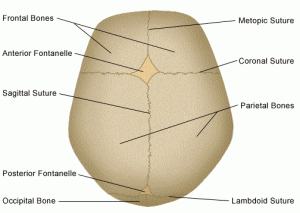Schedule a Consultation
216-621-3000Schedule a Consultation
216-621-3000
Hydrocephaly (also called hydrocephalus), known as “water on the brain,” is the build-up of cerebrospinal fluid in the cavities of the brain. For various reasons, the body is not able to reabsorb the fluid at the same pace that it is produced. The head can become larger, and there may be intense pressure inside the skull.
Hydrocephaly can be diagnosed while the baby is in the womb. Ultrasounds, which are more and more common, can sometimes detect enlarged ventricles in the brain, which could indicate a build-up of cerebrospinal fluid. Diagnosis may be made as early as 13 weeks, though it is more apparent by 20 to 24 weeks.
Hydrocephaly can also be diagnosed after birth. Pediatricians and neonatologists should be careful to track the baby’s head growth in the months after birth. If the head appears to be growing too rapidly, and particularly if the baby appears to have other neurological problems, hydrocephaly may be a concern. Some of these other problems may include:
Diagnosis can be made with a CT scan, x-ray, ultrasound or MRI.
When diagnosed in utero, physicians may recommend an amniocentesis to look for signs of neural tube defects like spina bifida. Detected early enough, and if the condition is severe, parents may be counseled on the possibility of early termination of the pregnancy. Though in some cases in uteroplacement of shunts to redirect the build-up of fluid have been tried, in most cases physicians will allow the baby to be delivered at or near full-term, opting to perform any necessary surgeries after birth.
Hydrocephaly in the newborn should be treated immediately. It is critical for doctors to reduce the amount of fluid and to relieve the pressure. Doctors sometimes order medication like Diamox or Mannitol. Depending on the cause of the hydrocephaly, physicians might remove a cyst or tumor through surgery, or place a shunt to redirect cerebrospinal fluid.
Left untreated or with delayed treatment, a child with hydrocephaly can develop several permanent medical problems, including:
There are many different causes of hydrocephaly, and the exact nature of the condition must be properly identified and diagnosed before an effective treatment plan can be instituted. If your child suffers from hydrocephaly, contact our birth injury lawyers at (440) 252-4399, or send us a message through our website. We can help to answer your questions, and to determine if your child’s condition was timely identified and treated.

